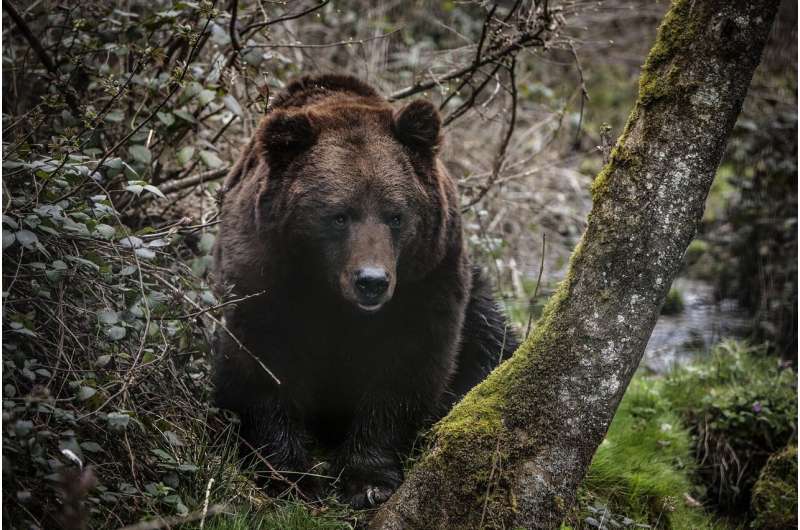
Two orphaned Black bears have been released back into the wild, ending their nearly year-long rehabilitation at the San Diego Humane Society’s Ramona Wildlife Center, according to officials.
The brother bears were rescued last July by California Department of Fish and Wildlife after their mother had died in the San Bernardino mountains and it was determined the two undersized, 5-month-old cubs could not survive on their own.
On May 15, after spending nearly a year at the Ramona wildlife center, the bears were released near where they were originally found.
“It’s a delicate skill to raise wild bears in captivity,” said Andy Blue, campus director of the wildlife center. “Bears eat more than 10 pounds of food per day, so to ensure they are fed without our staff ever being seen, and that they have plenty of enrichment to exhibit their natural behaviors without leaving human scents behind, takes meticulous planning.”
The bears’ journey back to their native habitat began soon after state officials captured the malnourished cubs and took them to Ramona. One bear weighed 12 pounds and the other weighed 15 pounds — the typical weight for a male Black bear that age is 25 pounds, Blue said.
“In the wild, they would’ve been preyed upon by other bears, coyotes, mountain lions and bobcats,” Blue said. “They were … about the smallest I’ve seen come through our facility.”
The bears were taken to the wildlife animal hospital to be treated and fed. Once the specialists were comfortable with the cubs’ recovery, the brothers were placed together in a large enclosure that mimicked their natural environment with native plants, officials said.
The enclosure allowed the bears to learn how to forage and eat a mixture of food — including fruits, vegetables, nuts, peanut butter and bear chow — daily. An Escondido family also donated a 467-pound, homegrown pumpkin to the wildlife center for the bears to play with and eat inside their enclosure.
The center’s veterinarians also ensured that they reduced contact with the bears as much as possible so that the wild animals would not become habituated to humans.
“We don’t want them associating with something like a pickup truck that pulls up that has food in the back,” Blue said. “So we just have to get really creative, even with remote feeders that spread food throughout the enclosure.”
During their rehabilitation, the bears gained about 80 pounds and are on track to reach full size—upward of 400 pounds.
Then, after the veterinarians gave them a clean bill of health, the bears were microchipped, fitted with GPS collars and released back into the wild earlier this month.
The wildlife center takes in approximately 1,000 wildlife patients a years, including six other bear cubs in 2022 and a 3-month-old mountain lion cub earlier this year.
“These are very rewarding cases,” Blue said. “They came to us as orphans and we put a tremendous amount of effort and resources into them. It’s a great feeling to release them back into the wild.”
2024 The San Diego Union-Tribune. Distributed by Tribune Content Agency, LLC.
Citation:
Two orphaned Black bears released back into wild after rehabilitation by San Diego Humane Society (2024, May 26)
retrieved 26 May 2024
from https://phys.org/news/2024-05-orphaned-black-wild-san-diego.html
This document is subject to copyright. Apart from any fair dealing for the purpose of private study or research, no
part may be reproduced without the written permission. The content is provided for information purposes only.







